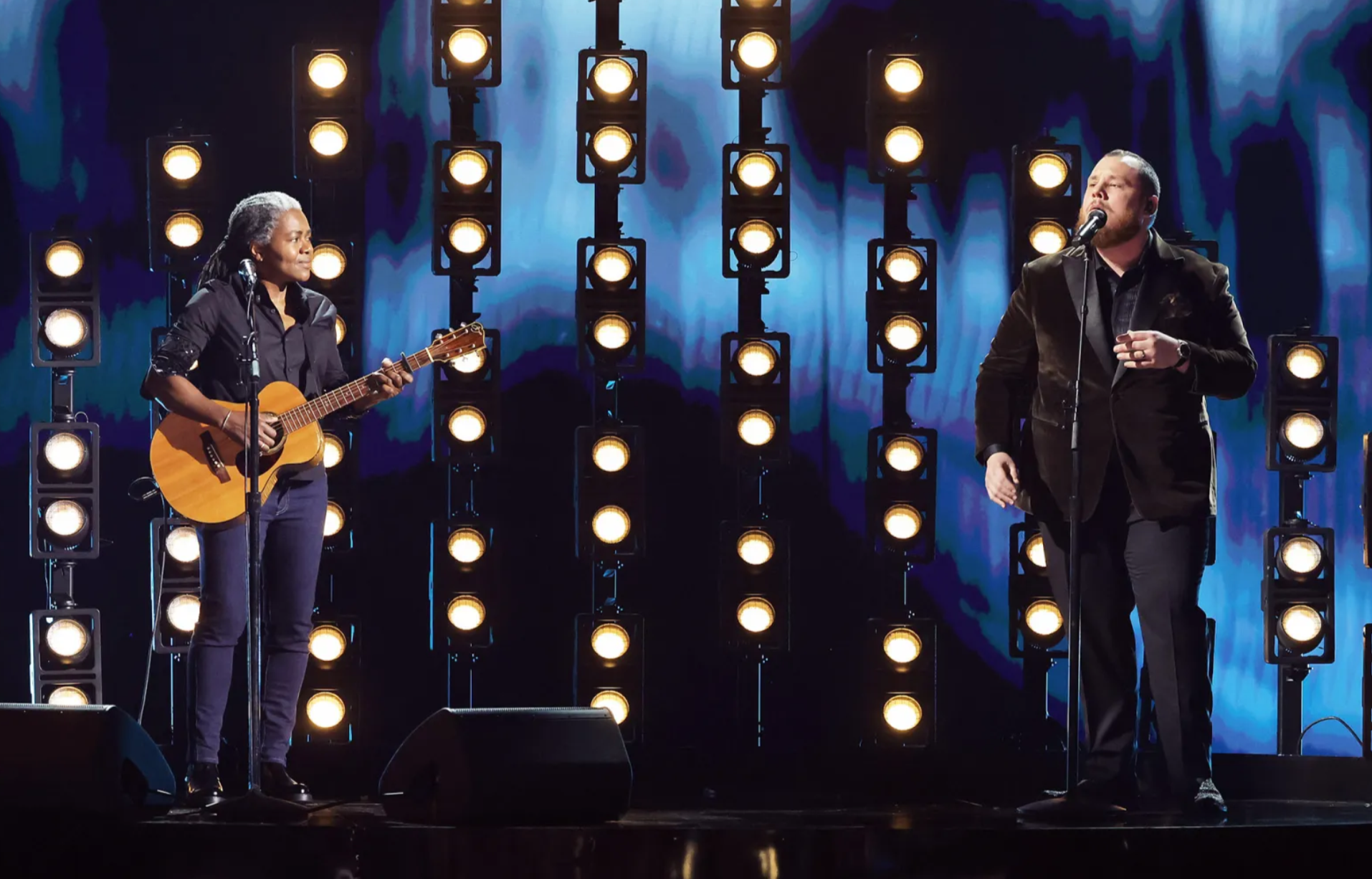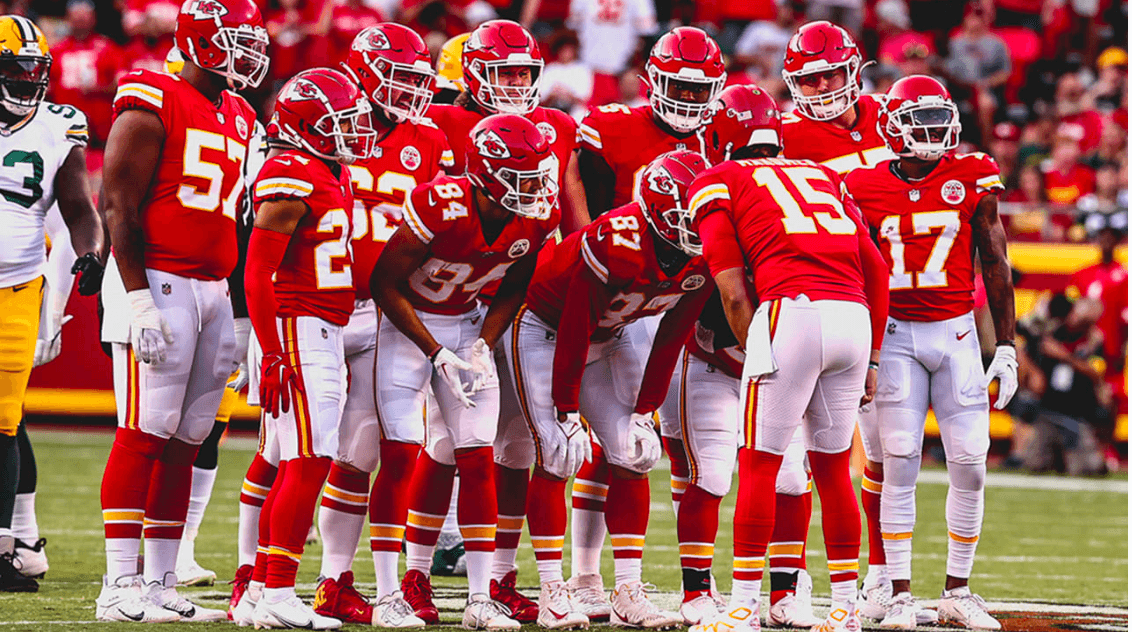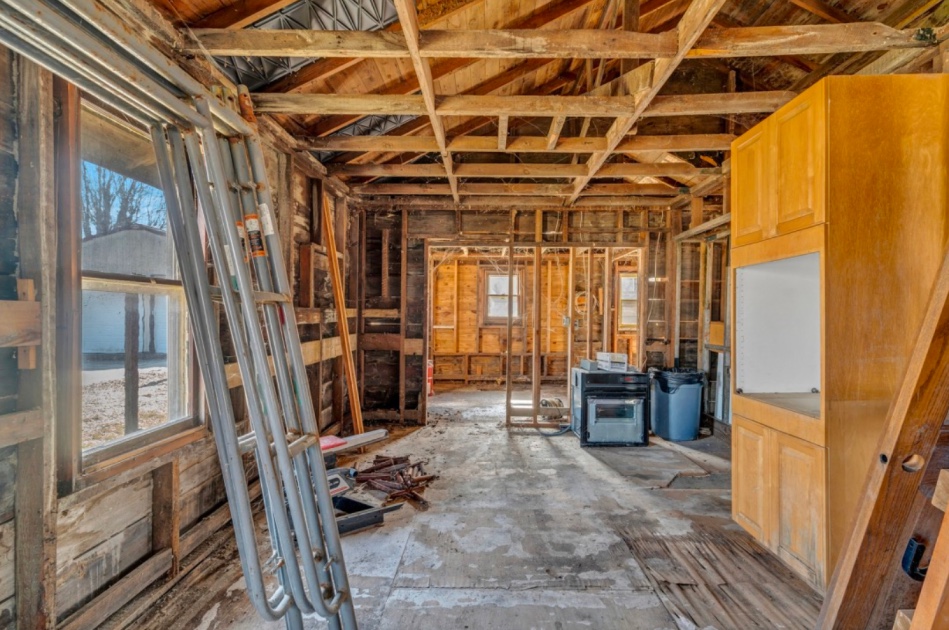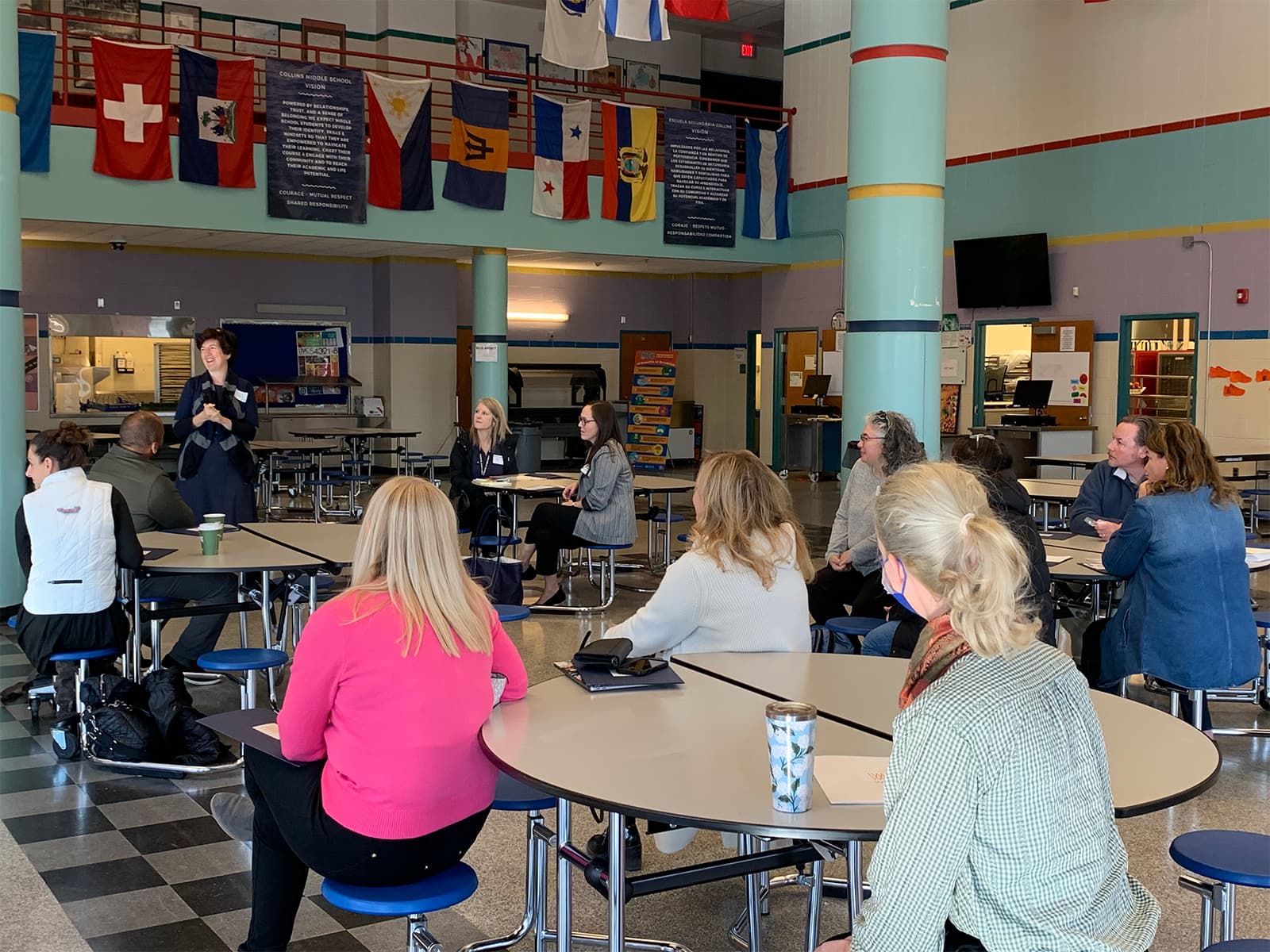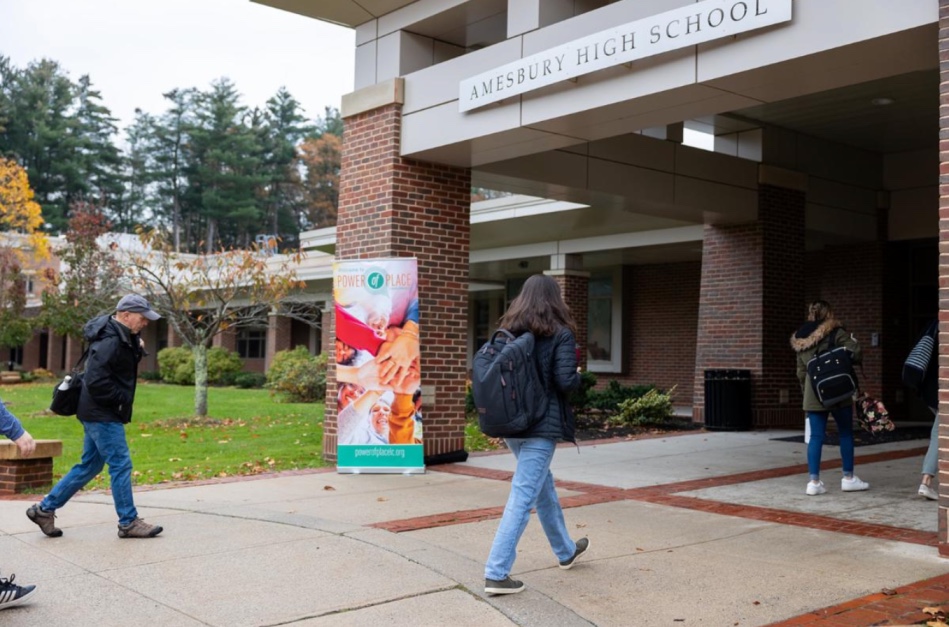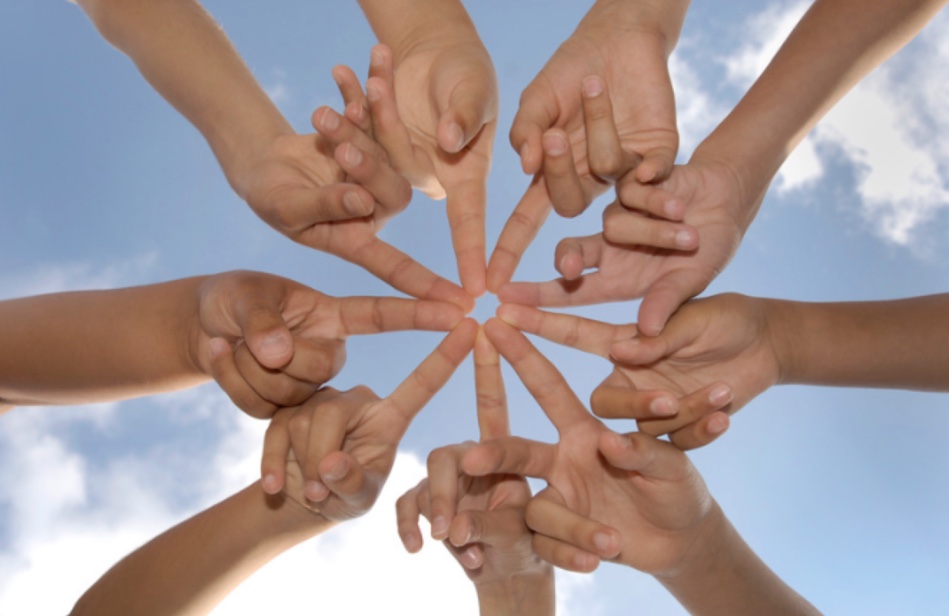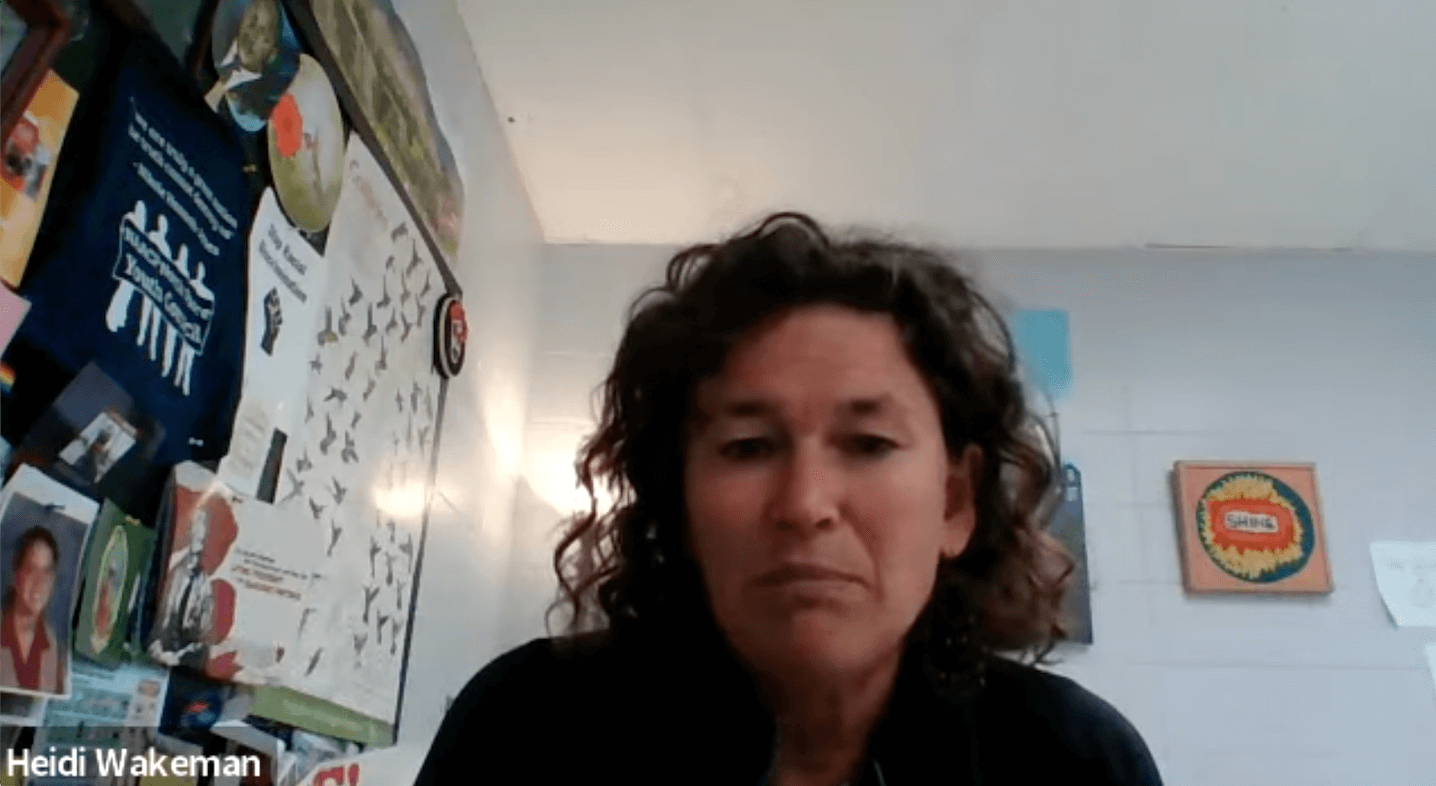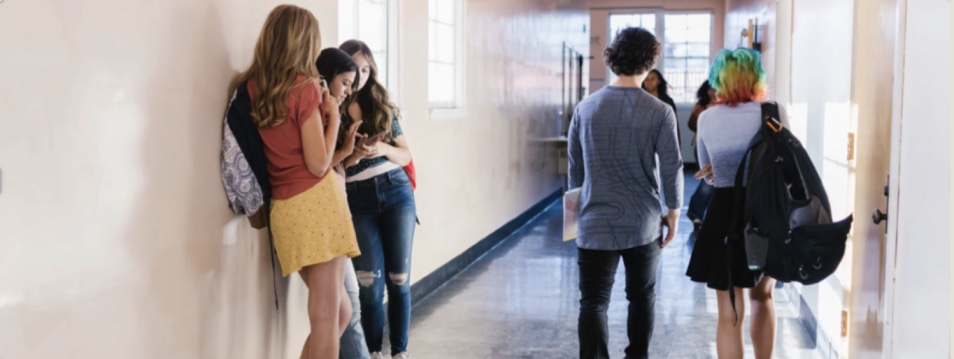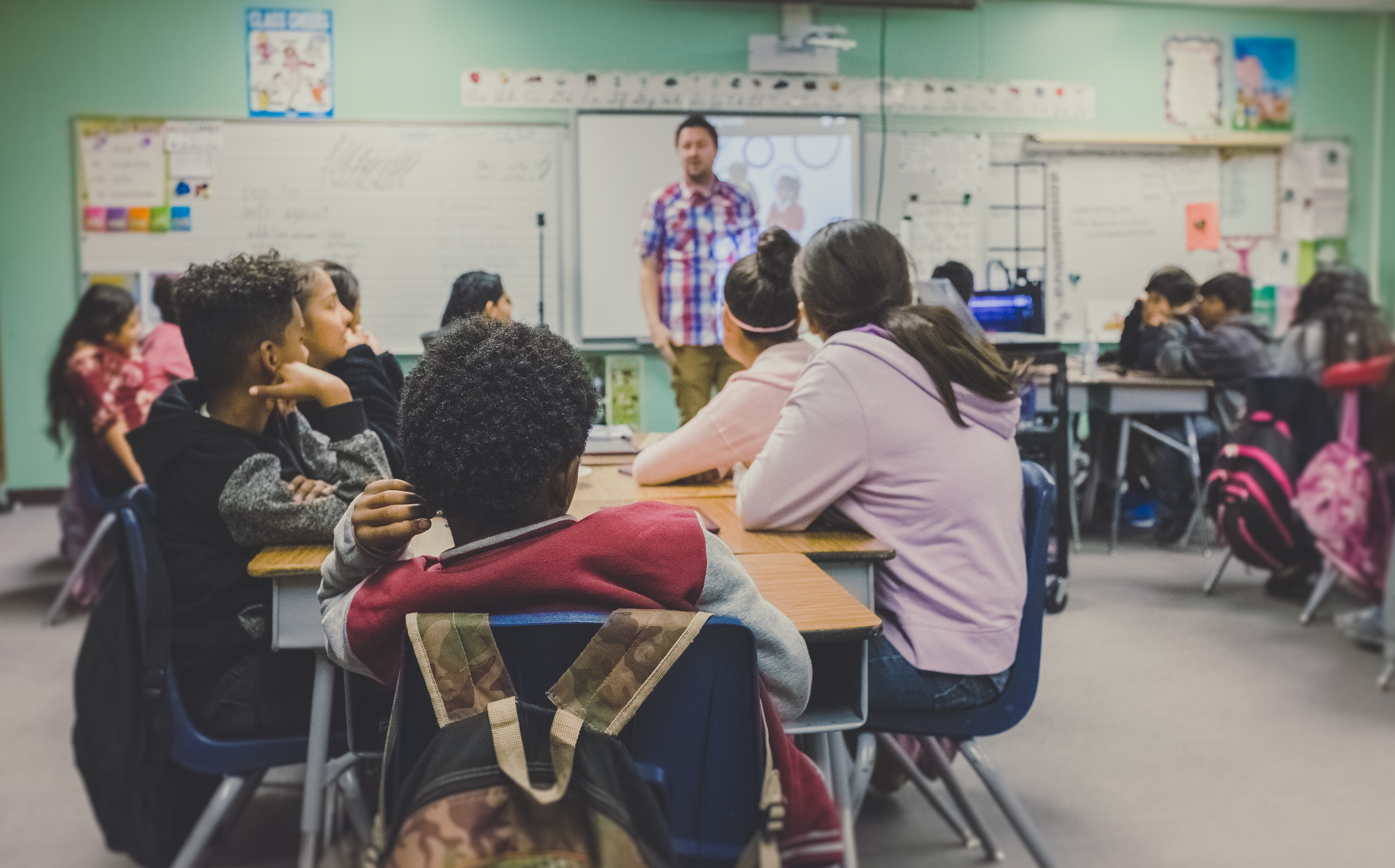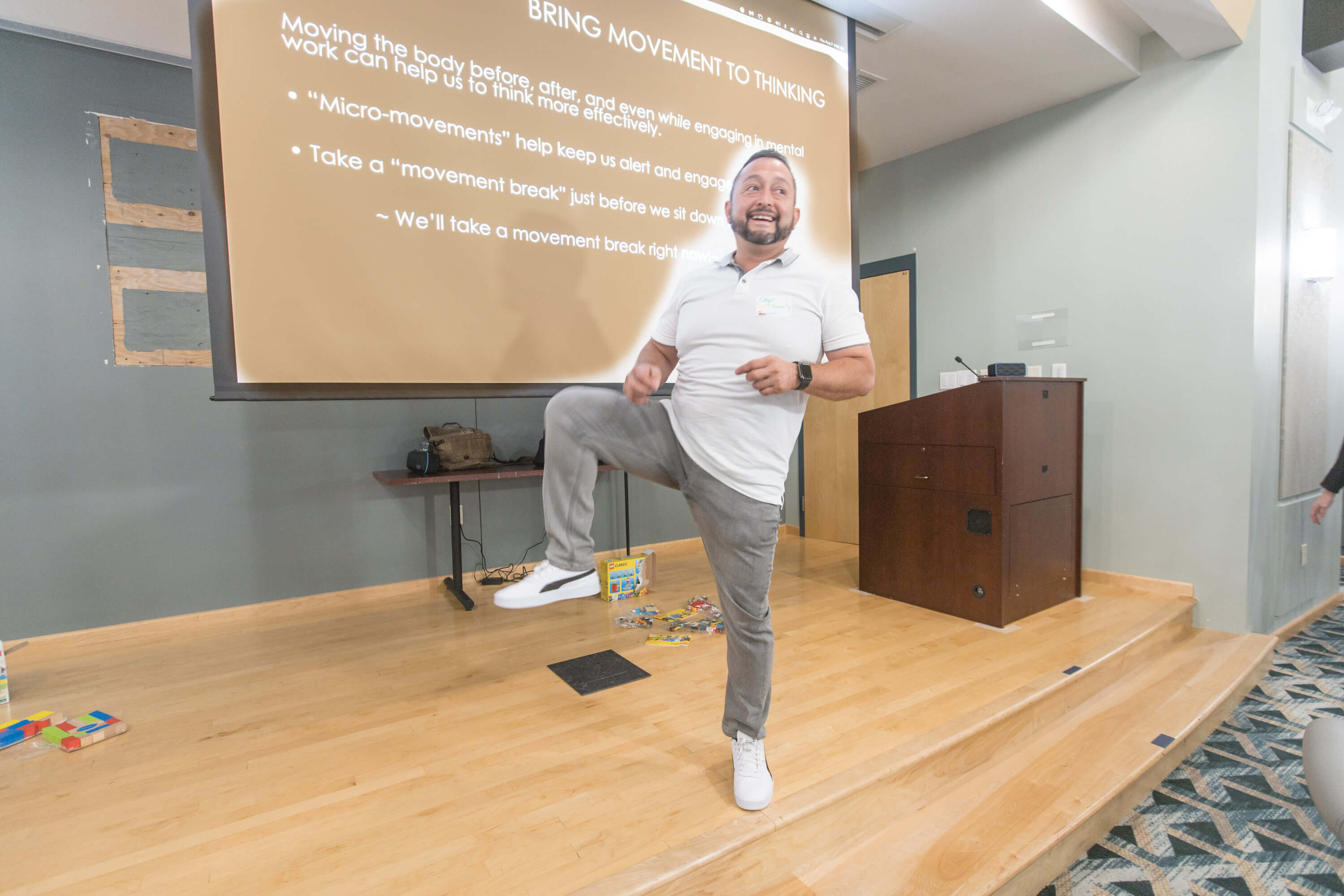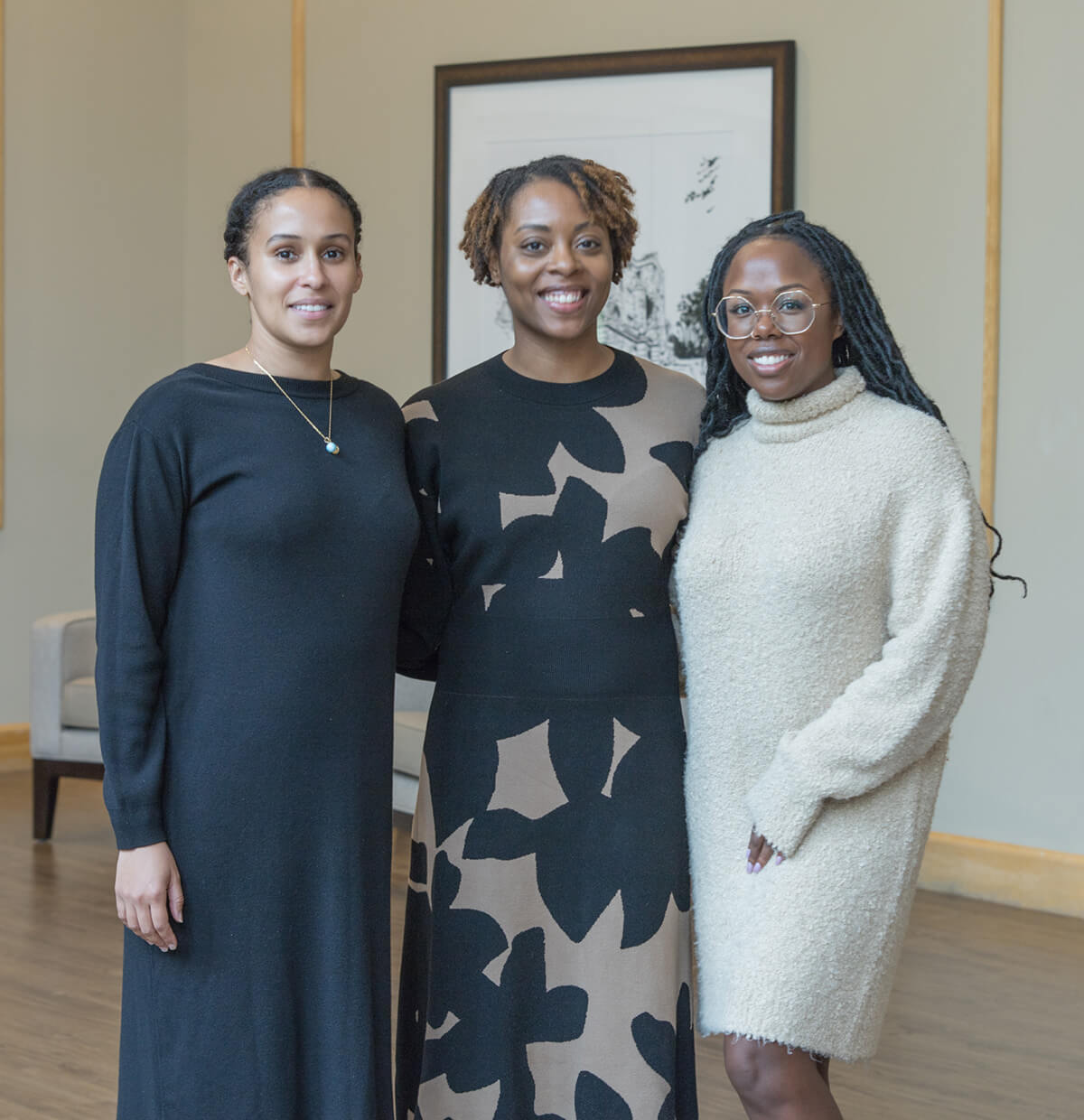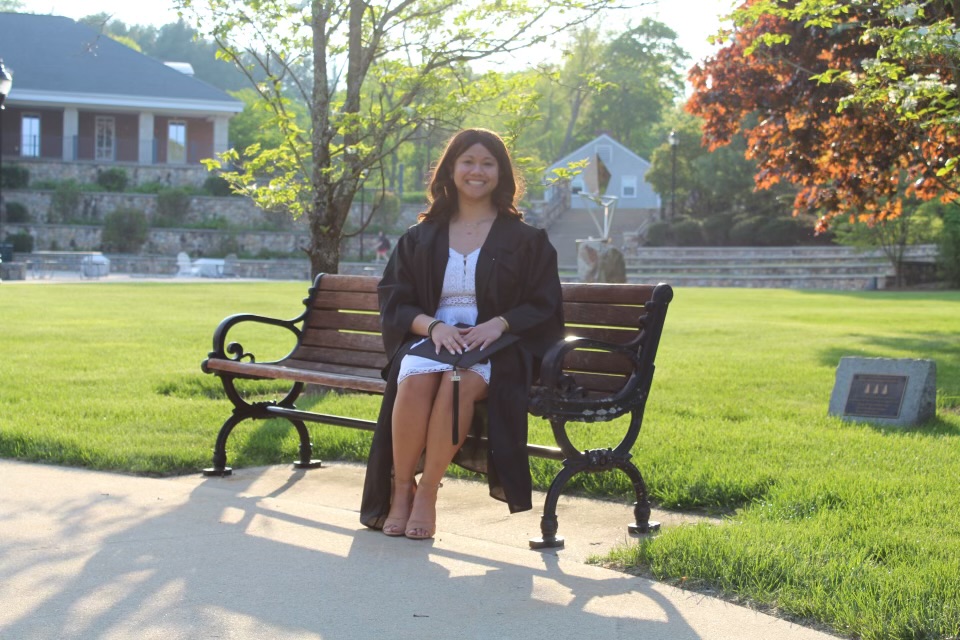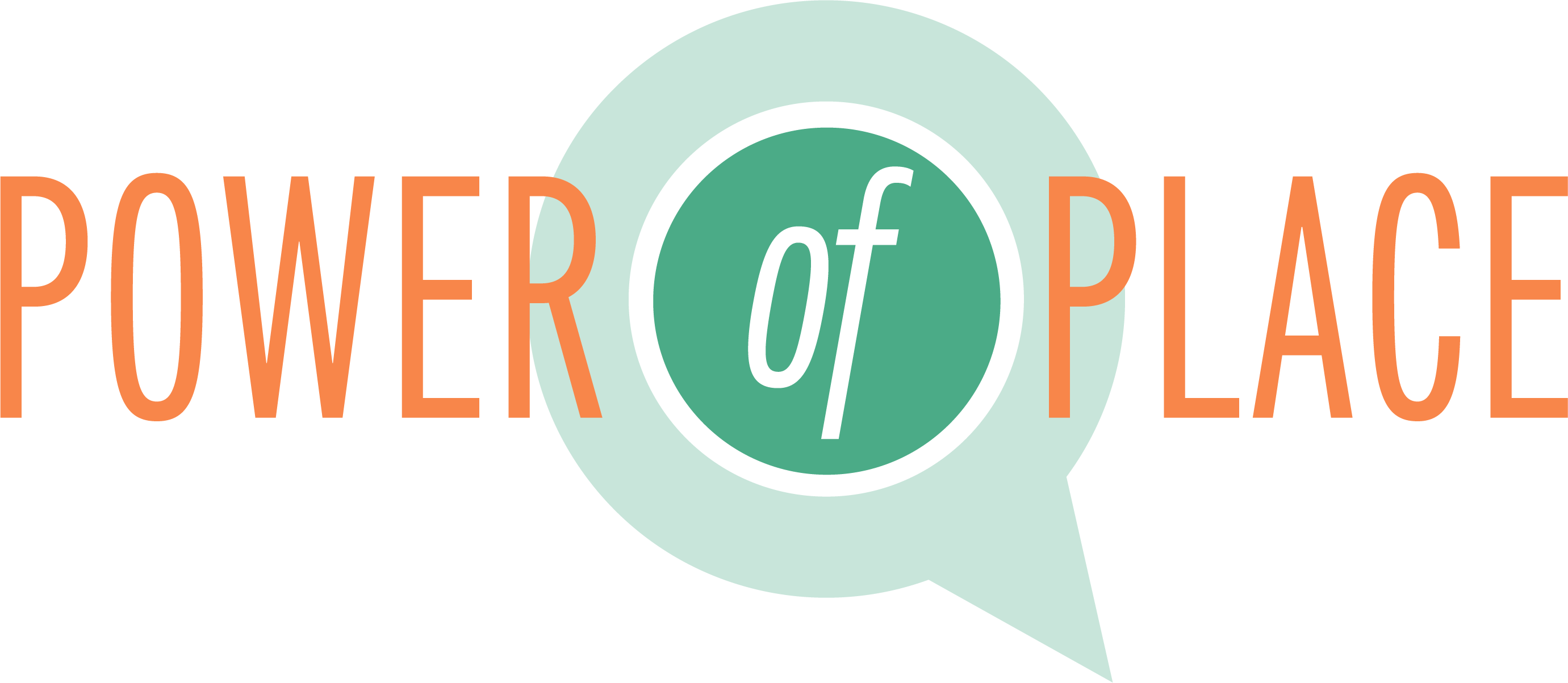Reaching Across the Divides
Tracy Chapman entered my life on a cool spring day in 1988 when, ironically enough, I was behind the wheel of my grey Toyota, sitting in rush hour traffic.
- February 9, 2024
- Jane Feinberg, Ph.D.
- Storytelling
Teaming for Excellence
Beyond our intuitive understanding of the importance of teams, there is plenty of evidence across the physical and social sciences pointing to what we gain from working together.
- January 26, 2024
- Jane Feinberg, Ph.D.
- Teaming
Remodeling the System
Remodeling often requires breaking something. Remodeling also - usually - requires reflection. Here’s my point: We are all in the midst of remodeling our education system to accommodate an ever-changing world.
- January 12, 2024
- Jane Feinberg, Ph.D.
- Remodeling
Celebrating Adult Learning
Our commitment to adult learning drives our annual ECLC Learning Agenda, and this year has inspired us to pursue more in-district, customized engagement with our communities. The most recent examples started in Lynnfield and Andover.
- December 20, 2023
- Jane Feinberg, Ph.D.
- adult learning
Tapping Our Hidden Potential
Hidden potential exists at all levels of the education workforce. Like students, educators need opportunities for growth and development in order to engage in ongoing learning and reflection. Educators also need space to stretch beyond your comfort zone.
- December 1, 2023
- Jane Feinberg, Ph.D.
- hidden potential
Reimagining Middle School: Collins Middle School Pilot Site Visit (Salem)
Reimagining Middle School: Collins Middle School Pilot Site Visit (Salem)
- November 30, 2023
- Students
Giving Thanks
ECLC Fall Gathering: Windows and Mirrors: Teaching, Learning, and Leading Across Difference. Last year ECLC Superintendents asked us to host a day of learning on Election Day for all district staff.
- November 14, 2023
- Jane Feinberg, Ph.D.
- thanks
Social Connection is Good Medicine
Social connection is good medicine. That was the conclusion of Dr. Vivek Murthy, U.S. Surgeon General, who spoke recently at “Building Connected Communities,” a national conference at Harvard University.
- October 27, 2023
- Jane Feinberg, Ph.D.
- social
Find your voice by telling your story
What’s your story, and how does it define you? This was the question Gloucester Spanish teacher Heidi Wakeman posed to her peers at a recent training she led during a professional development day.
- October 26, 2023
- Heidi Guarino
- Storytelling
Making Space for Discomfort
For me and my extended family, the past several days have been gut-wrenching. We could only watch in disbelief as Hamas terrorists violently attacked Israel. I lived in Israel briefly and have dozens of friends and relatives who have made Israel their home.
- October 12, 2023
- Jane Feinberg, Ph.D.
- Resilience
How are our kids really doing?
The media and trade press is filled lately with stories about today’s realities of adolescence—from the Learning Policy Institute’s “What Adolescents Are Teaching Us Post-Pandemic and Why We Should Listen” to The 74’s “How Are Kids Really Doing after COVID-19?”
- September 28, 2023
- Jane Feinberg, Ph.D.
- Students
Learning Agenda Spotlight: Reimagining Middle School
What metaphor would you use to describe middle school? Is it a roller coaster ride, with a lot of ups and downs, and plenty of screaming! A foundation upon which the house (high school and beyond) can be built?
- September 28, 2023
- Jane Feinberg, Ph.D.
- Students
Use your head … and everything else, too
“Use your head” is the typical mantra of parents, educators and grown ups everywhere as they encourage young people to think for themselves and make smart decisions. But how can the rest of our bodies and the world around us help?
- August 16, 2023
- Heidi Guarino
- Summer Institute
Partnering for the Future: ECLC Spring Gathering Spurs Productive Conversation Between Students and Educators
We often say that when educators are able to connect meaningfully with one another they come to feel a renewed sense of purpose, energy, and confidence. But what happens when you add students to the mix?
- June 1, 2023
- Gary Chapin
- Connecting
Honoring Asian Pacific American Heritage Month
On Sunday, we celebrated our daughter Chenda’s graduation from college. From the beginning of the ceremony and throughout the weekend, I reflected on her extraordinary journey – from an orphanage just outside of Phnom Penh, Cambodia to an inner ring Boston suburb.
- May 25, 2023
- Jane Feinberg, Ph.D.
- Resilience
Our Stories Tell Us
Asset-based storytelling is a powerful way to build empathy, equity, and meaning, either as a teacher of students, a colleague among teachers, a leader, or … well … any human.
- February 14, 2023
- Gary Chapin
- Storytelling
This Time It's Personal (Actually, at ECLC, It's Always Personal)
On November 3 rd , about 70 participants, presenters, and facilitators got together at the Wylie Center in Beverly, MA, for the Fall Gathering of the Essex County Learning Community.
- December 13, 2022
- Gary Chapin
- Restorative Practices
Being Seen, Feeling Seen
This past August, my colleague, ECLC member Craig Harris, and I had the opportunity to lead a short session called “Doing Diversity”. It was a powerful experience for me in a way that I hadn’t anticipated, but that I deeply treasured.
- November 1, 2022
- Hong Ly, Ed.D.
- Diversity
